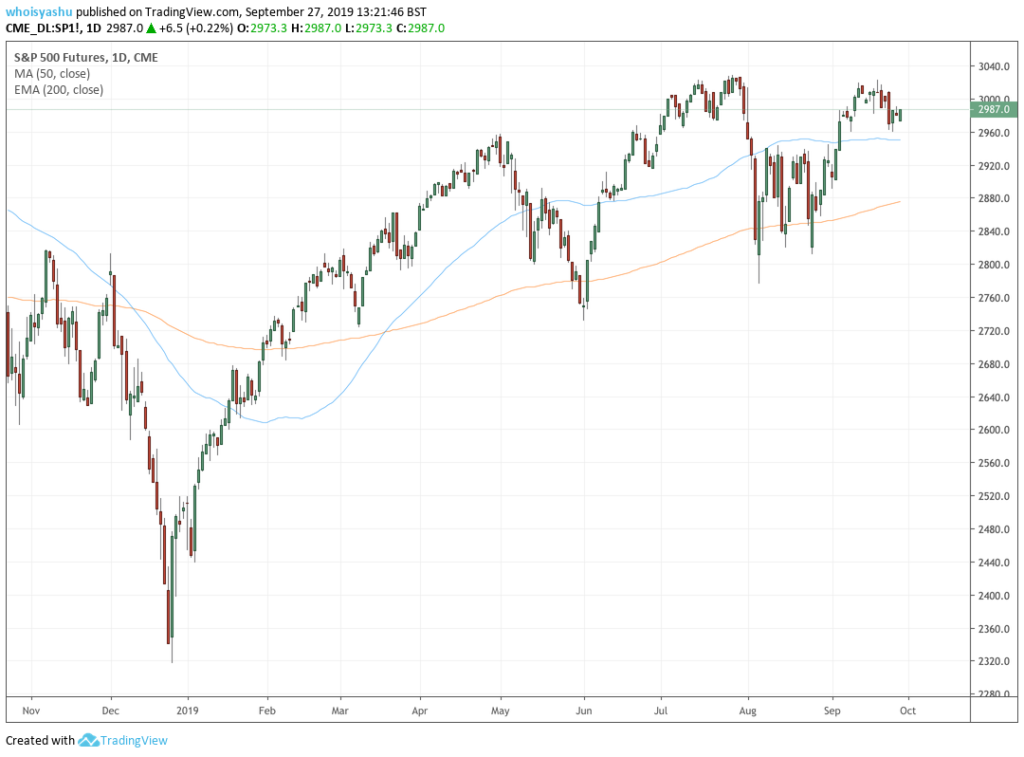Asian Stocks Fall on Trade Uncertainties, China Data Hangover

Asian stocks feel the pinch of U.S.-China trade uncertainty. | Image: Shutterstock
Asian stocks closed lower on Friday as investors gauged emerging trade uncertainties in the United States and weak Chinese economic data.
Japan’s Nikkei and Hong Kong’s Hang Seng dropped by 0.8% and 0.3%, respectively. South Korea’s KOSPI also struggled and fell by 1.2%. Meanwhile, China’s Shanghai Composite Index closed mildly higher but remained in the negative zone on weekly chart, down 2.5%.

China’s Economy Struggles
The decline in stock markets comes in the wake of poorer than expected Chinese economic data from two weeks back. Those reports showed that industrial output rose by only 4.4% annually against the expectations of 5.2%. While some areas of productions strengthened, including crude oil and electricity, market experts said restrictions on manufacturing activities ahead of the 70th anniversary of the founding of the People’s Republic of China slowed down growth.
Retail sales also slowed down, according to the NBS report. Its growth fell from 7.9% in July to 7.5%in August. In the same month, Chinese exports fell by 1%. But to the U.S., they plunged by a shocking 16% owing to an ongoing trade war between the Washington and Beijing.
The poor-than-expected data also showed the Chinese economy growing at a more sluggish 6.2% annual pace, the weakest in the last three decades.
“The slowdown in China is becoming quite significant,” Tommy Wu, senior Asia economist at Oxford Economics, told BBC. “Both the weakening in the domestic economy and deteriorating external environment, including both a global slowdown and the US-China trade tensions, have a role to play in China’s slowdown.”
Trouble Looming
Mixed messages from President Donald Trump regarding the U.S.-China trade dispute has created uncertainty in the stock market. His latest tweets promise progress in the discussions, especially ahead of the high-profile meeting between the representatives of the U.S. and China in two weeks’ time.
On the other hand, a White House representative told Bloomberg that Washington is in no mood to renew a waiver that would allow American companies to work with Chinese technology giant Huawei. Meanwhile, a Chinese government representative said Beijing is willing to buy more American products as a gesture of goodwill ahead of trade talks.
U.S. Futures Up
U.S. futures rose on Friday, as investors looked past trade uncertainty. At the time of writing, U.S. futures prices were up, with Dow Jones Industrial Average rising by 0.2%, the S&P 500 gaining by 0.3% and Nasdaq up by 0.2%.

Edward Moya, a senior market analyst at Oanda, noted that U.S. investors are weighing the prospects of a positive trade deal with China before Thanksgiving.
For the week ahead, investors will be looking at the developments in the U.S. political space, as well as more economic data from China.